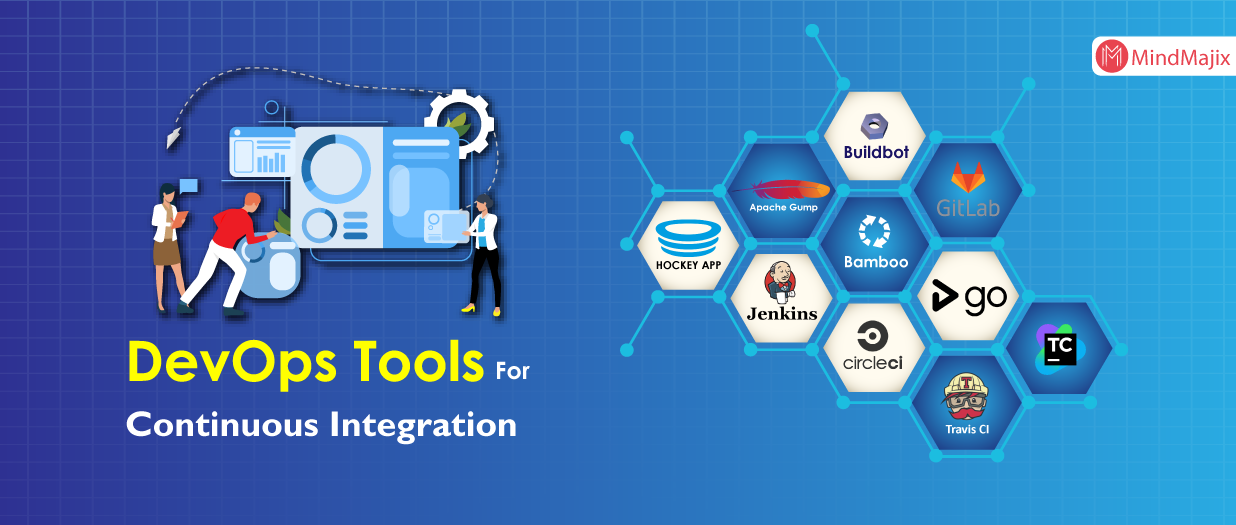At our company, we are committed to providing the highest quality services and products to our customers. In this article, we will be discussing Jenkins, an open-source automation server that is widely used for continuous integration and continuous delivery (CI/CD) purposes. We will provide an in-depth overview of Jenkins, its features, and how it can be used to streamline the software development process.
What is Jenkins?
Jenkins is an open-source automation server that is used to automate various aspects of the software development process. It is widely used for CI/CD purposes and is highly configurable, allowing developers to set up their own custom workflows. Jenkins is written in Java and is highly extensible through the use of plugins, which can be used to add additional functionality to the system.
Jenkins is an open-source automation tool that can be integrated with various other tools to automate software development processes. TinyTask, on the other hand, is a lightweight desktop automation tool that can record and play back mouse and keyboard actions. Integrating TinyTask with Jenkins can help automate repetitive tasks in the build and deployment process, increasing efficiency and reducing errors. This can be achieved using plugins available in Jenkins or by using command-line scripts to trigger TinyTask.
Features of Jenkins
Jenkins has a wide range of features that make it an ideal choice for CI/CD purposes. Some of the key features of Jenkins include:
- Continuous Integration – It provides seamless integration with various source code management tools, allowing developers to automate the building and testing of their applications as soon as they commit changes to the codebase.
- Plugin Architecture – It is highly extensible through the use of plugins. There are over 1,500 plugins available for Jenkins, which can be used to add additional functionality to the system.
- Customizable Workflows – It allows developers to create their own custom workflows, allowing them to tailor the system to their specific needs.
- Distributed Builds – It can be configured to run builds on multiple machines, allowing for faster build times and greater scalability.
- Easy to Use – It has a user-friendly interface that makes it easy for developers to configure and use the system.
How Jenkins Works
It works by monitoring source code repositories for changes. When changes are detected, Jenkins will automatically build and test the code. This process is known as continuous integration. Jenkins can also be configured to deploy the application automatically to a testing or production environment, making it an ideal tool for continuous delivery.
It uses a plugin architecture, which allows developers to add additional functionality to the system. Plugins can be used to perform a wide range of tasks, including source code management, testing, and deployment.
It can be run on a wide range of platforms, including Windows, Mac, and Linux. It can be installed on a single machine or configured to run on multiple machines, allowing for greater scalability.
Why Use Jenkins?
There are many reasons why Jenkins is a popular choice for CI/CD purposes. Some of the key benefits of using Jenkins include:
- Faster Development Cycles – It automates many aspects of the software development process, allowing developers to focus on writing code rather than manual tasks.
- Greater Efficiency – It can be used to automate a wide range of tasks, including building, testing, and deployment. This can help to streamline the software development process and reduce the risk of errors.
- Greater Collaboration – It provides seamless integration with source code management tools, making it easy for developers to collaborate on projects.
- Extensibility – It is highly extensible through the use of plugins, allowing developers to add additional functionality to the system.
Also read: The Best Project Management Tools For Project Team Collaboration
Conclusion
It is an open-source automation server that is widely used for CI/CD purposes. It has a wide range of features that make it an ideal choice for developers, including continuous integration, a plugin architecture, customizable workflows, distributed builds, and a user-friendly interface. By using Jenkins, developers can streamline the software development process, reduce errors, and improve collaboration. If you are looking for a tool to help you automate your software development process, Jenk is definitely worth considering.





